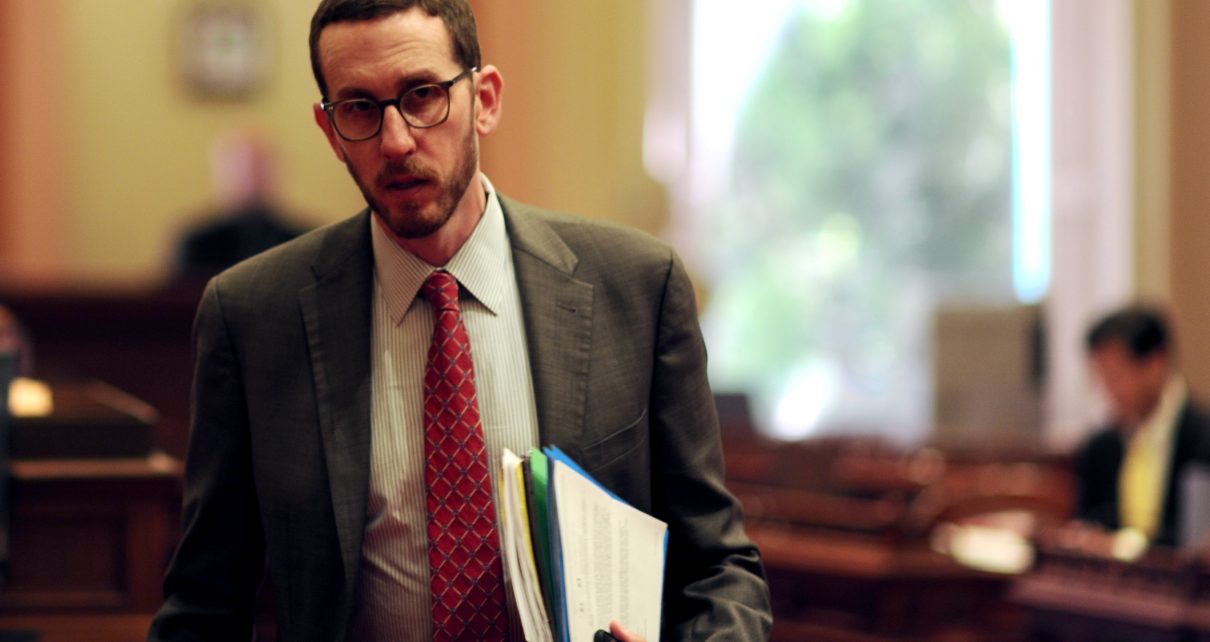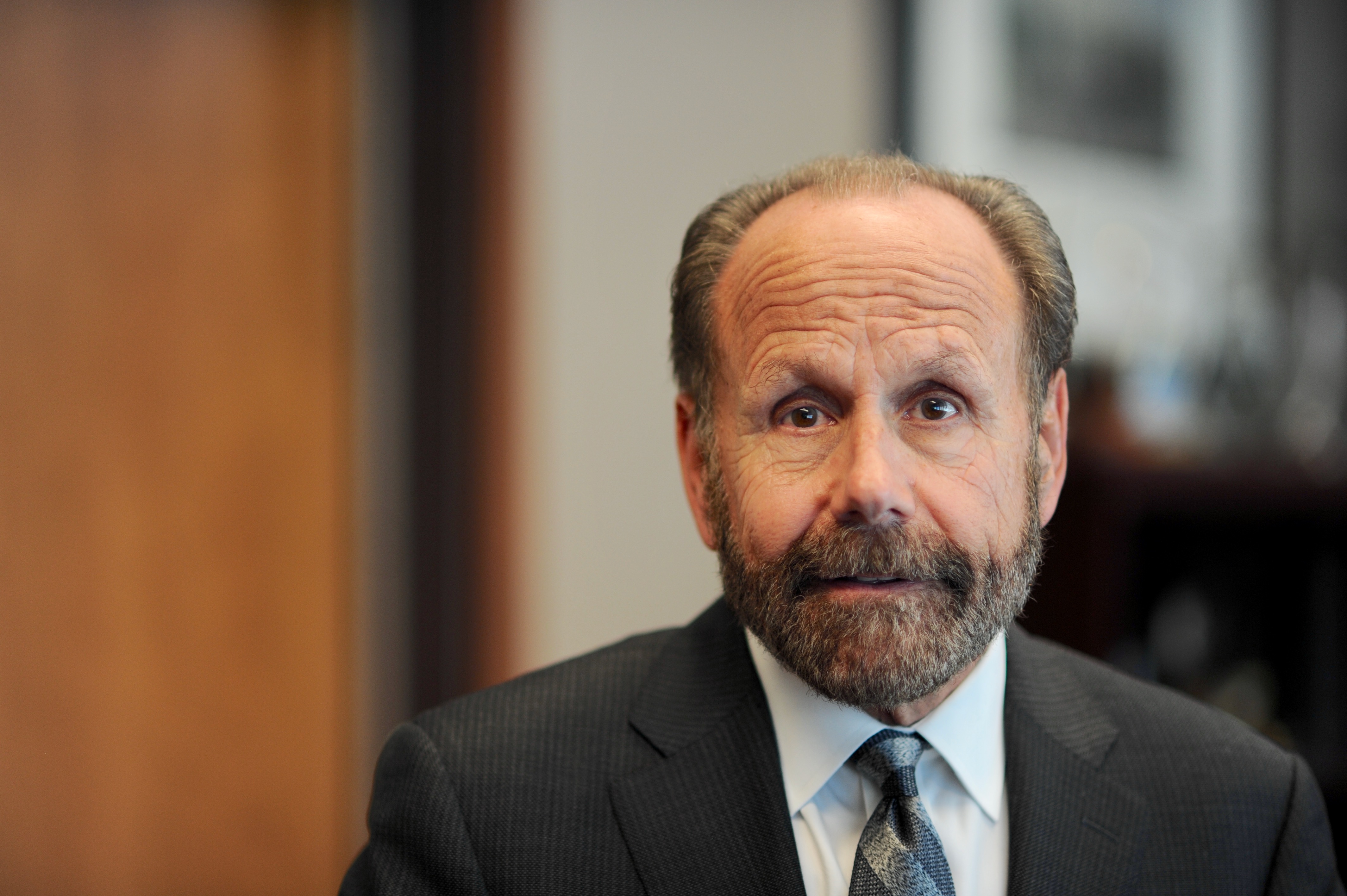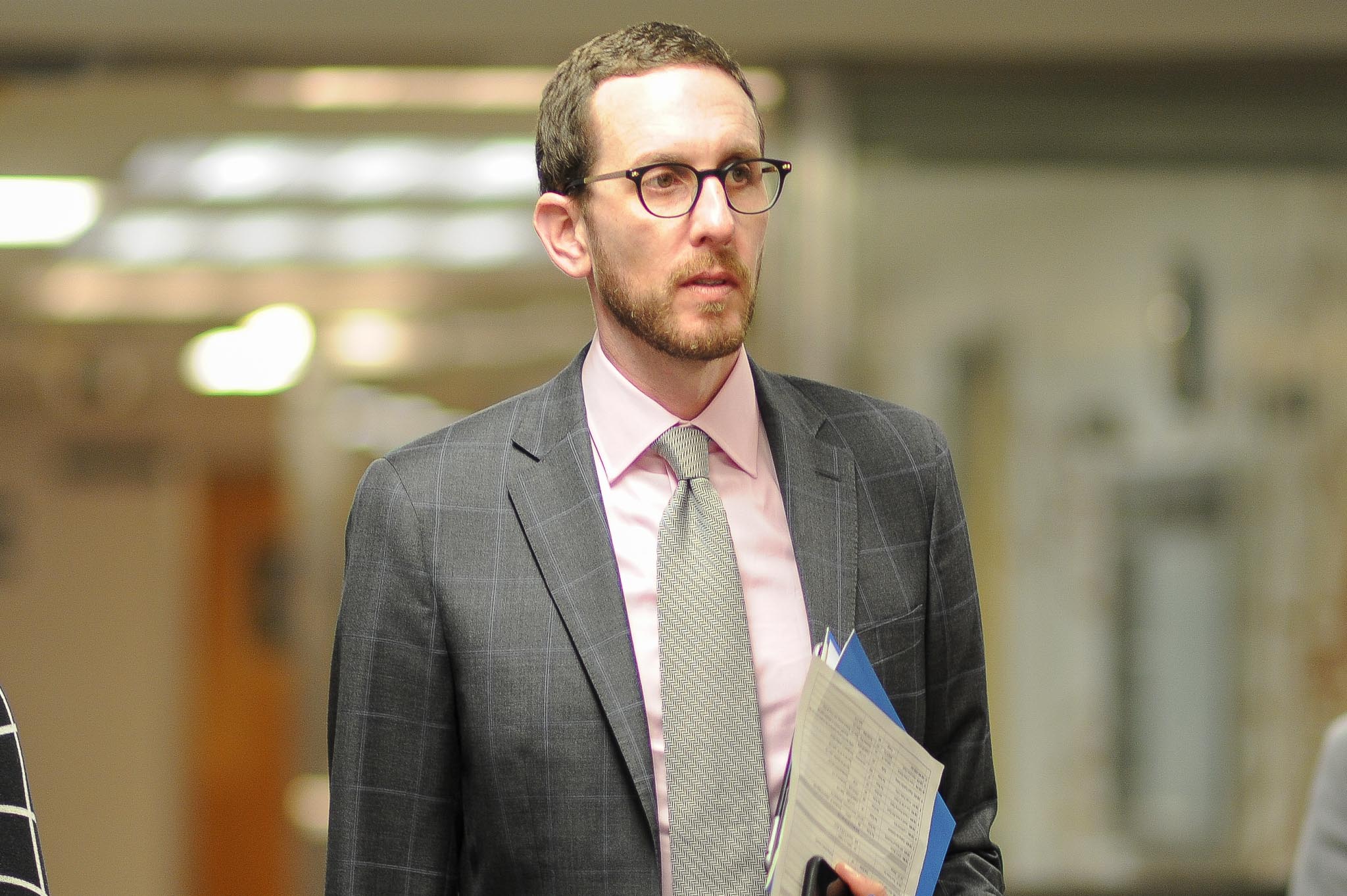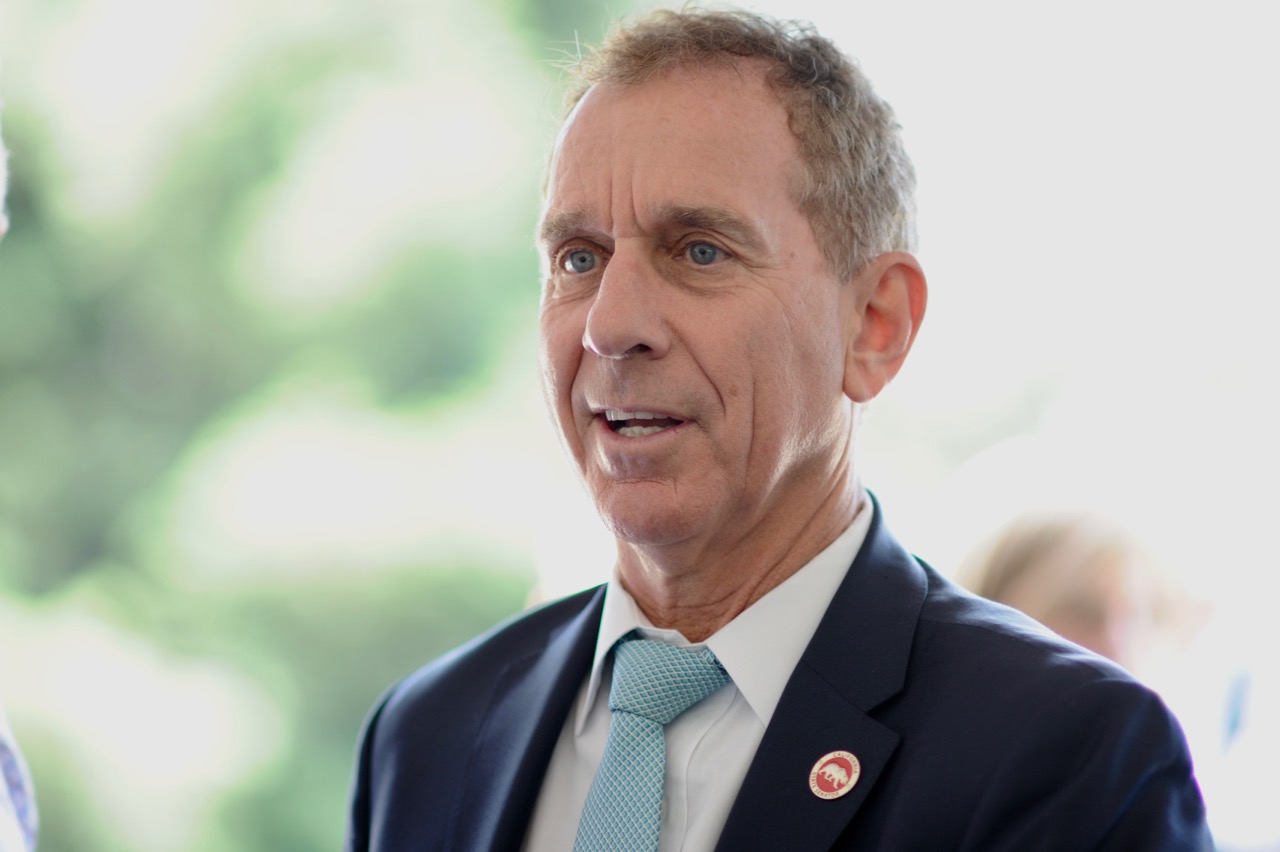
Senator Scott Wiener. (Photo: Kevin Sanders for California Globe)
Senate Passes Bill that Makes PG&E Accountable for Blackout Damages
SB 378 heads to the Senate following several amendments.
By Evan Symon, January 29, 2020 8:07 pm
After failing twice last year and barely squeaking by a Senate Committee vote several weeks ago, Senate Bill 378 has finally passed a Senate vote this week after several late amendments made it more palatable to Senators in Sacramento.
Updated amendments in SB 378
SB 378, written by Senator Scott Wiener (D-San Francisco), managed to keep most of the original points of the bill. Energy companies can still be fined at least $250,000 per hour for every 50,000 customers who lost power in an ‘unreasonable or preventable’ planned blackout, or as the bill calls it, a “deenergization event.” Shareholders would also still pay for all accrued costs and customers would still not be billed during blackouts.
However the bill was significantly changed on the size of the companies that can be sued. Whereas in the original bill, only companies with more than 2.5 million electrical connections could be sued, the newly altered amendments scratched out the number, essentially making any energy or utility company that enacts a planned blackout being at risk of being fined.
The menagerie of state organizations originally overseeing the potential new law has also been streamlined. The Wildfire Safety Division would oversee planned blackout action until June of 2021 with the Office of Infrastructure Safety taking over afterwards.
Wildfires and blackouts
SB 378 has been fiercely fought for since the latter months of 2019. PG&E, undergoing a bankruptcy stemming from being the cause of the disastrous 2018 Camp Fire in Paradise, started temporarily shutting down power in areas at a high wildfire risk. Many affected cities lost hundreds of thousands of dollars in lost revenue, with many elderly, low-income, and disabled residents facing severe hardships due to lost power, food, and phone access. At one point conditions had degraded so much that Governor Gavin Newsom had threatened PG&E with a state takeover, a threat that may still happen if PG&E doesn’t get out of bankruptcy by June.
The amendments in the bill, as well as the 2020 wildfire season threatening even more blackouts, convinced many Senators from both parties to vote for the bill, passing it 25-2, with 12 not voting.
Passage of SB 378 in the Senate and a new bill for a public utility
Senator Wiener, blackout victims, and other supporters of the bill celebrated the vote. Senator Wiener reiterated his stance on not unjustly harming people from the blackout and also announced that he would be introducing legislation to have PG&E become a public utility this year.
“I am thrilled that SB 378 passed out of the Senate. If it becomes a law, SB 378 will begin the process of holding PG&E accountable for the harm it has caused the people of California during the blackouts last fall,” said Senator Wiener in a statement. “PG&E has abused its power for far too long, and instead of fixing its faulty equipment, which led to the deadliest wildfire in California history, it leveled massive power shut-offs all over the state to avoid liability. While I understand that blackouts are a necessary tool in wildfire prevention, they should be implemented with a scalpel, not a sledgehammer.
I will soon be introducing a bill to turn PG&E into a public utility. I am serious about reforming our utilities in California and see the progress we’ve made with SB 378 as a strong start.”
Remaining opposition
Energy companies and their workers remain opposed to the bill, touting the need for blackouts to prevent wildfires and citing several times last year where a blackout prevented a wildfire.
“This is basically telling us that we either cut the power and get fined for stopping a wildfire or we keep the power on causing another wildfire only to pay out huge in damages and insurance,” said former electric company lineman P.J. Ryan in an email to the California Globe. “It’s damned if we do, damned if we don’t.”
SB 378 is currently on its way to the Assembly where a vote is expected on it later this year.
- Bill to Require Law Enforcement Disclosure if AI Was Used To Help Write Reports - August 7, 2025
- Gov. Newsom Files FOIA Request To ‘Expose True Cost’ Of L.A. Federal Troop Deployment for Anti-ICE Riots - August 6, 2025
- California Redistricting: How Newsom’s Plan Will Demolish Hard Fought GOP Gains - August 6, 2025





Can’t fix stupid ! It’s resides in a politicians DNA.